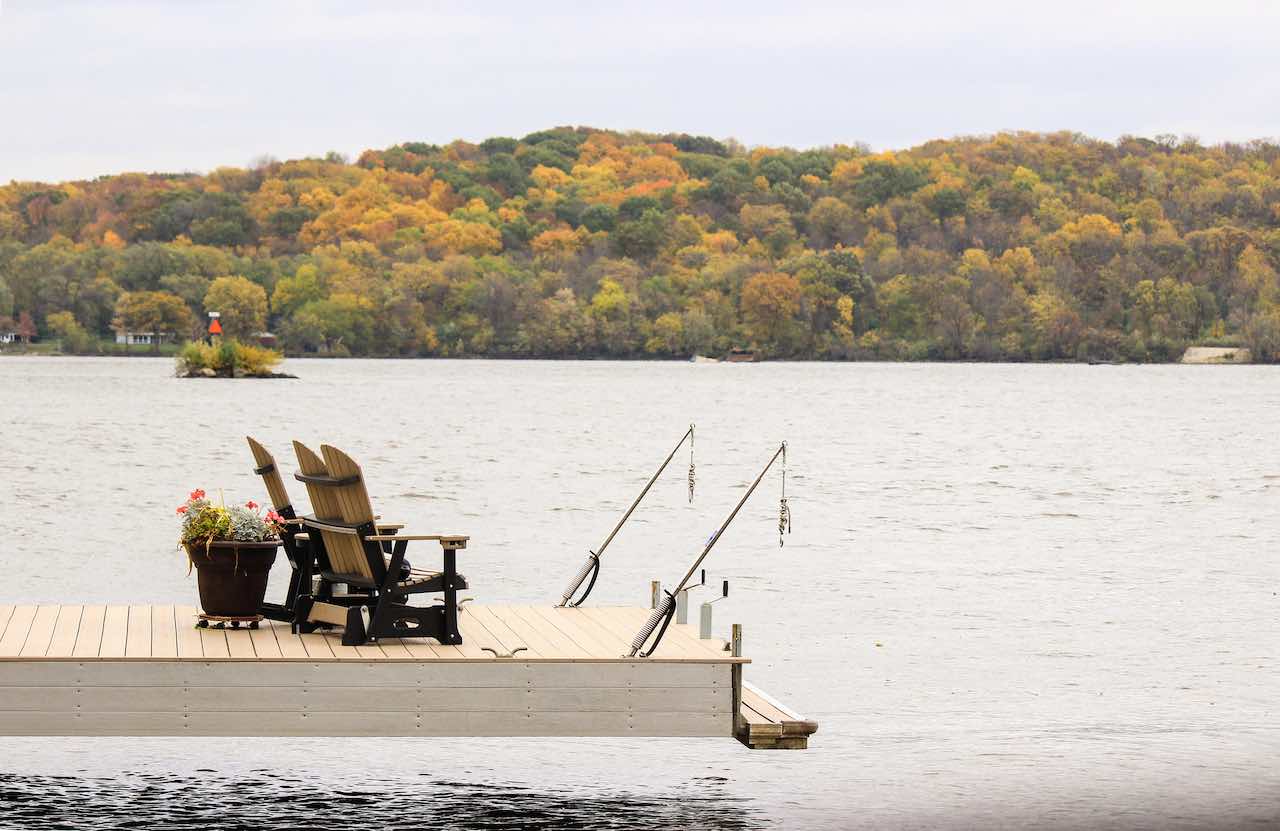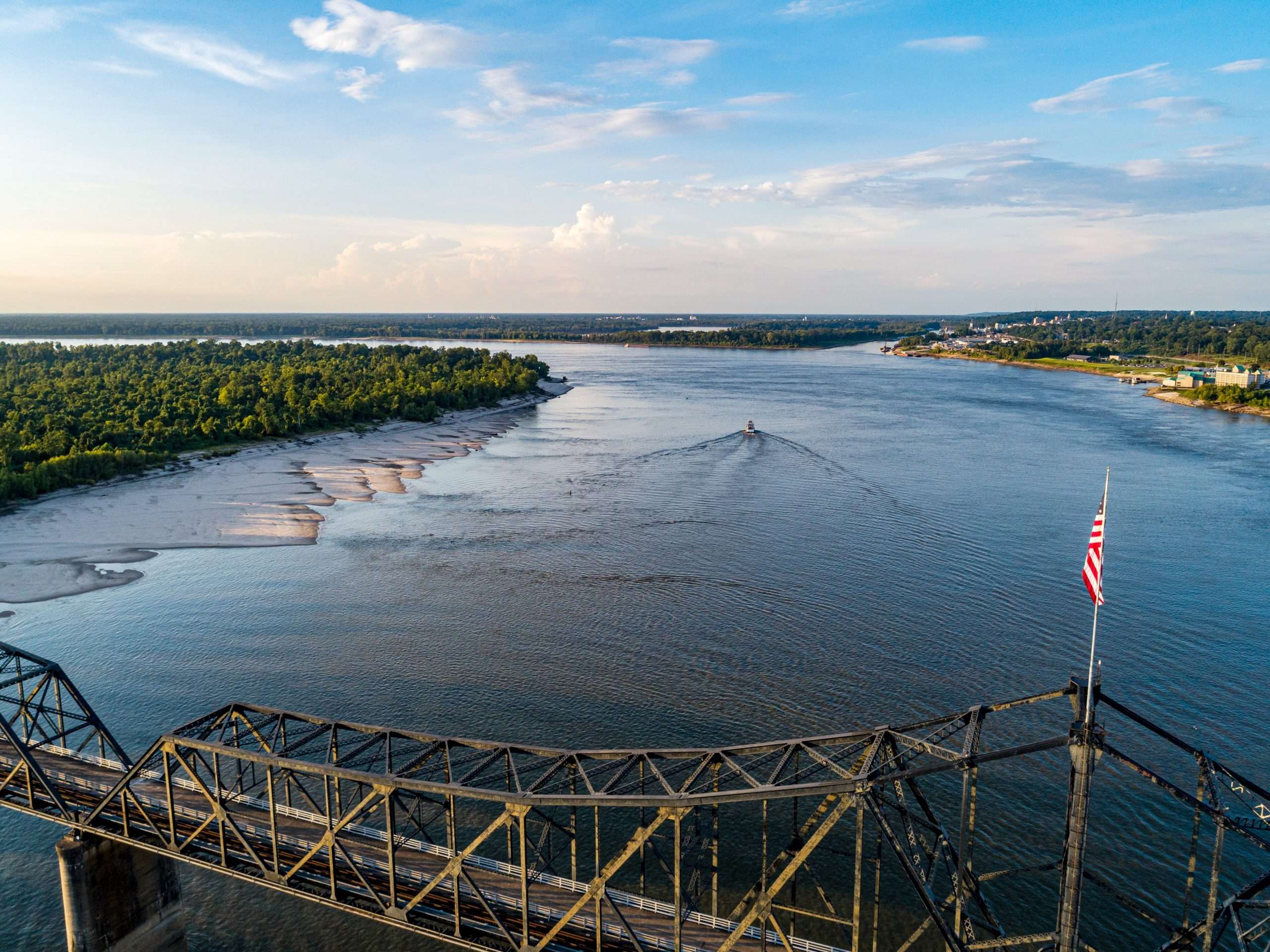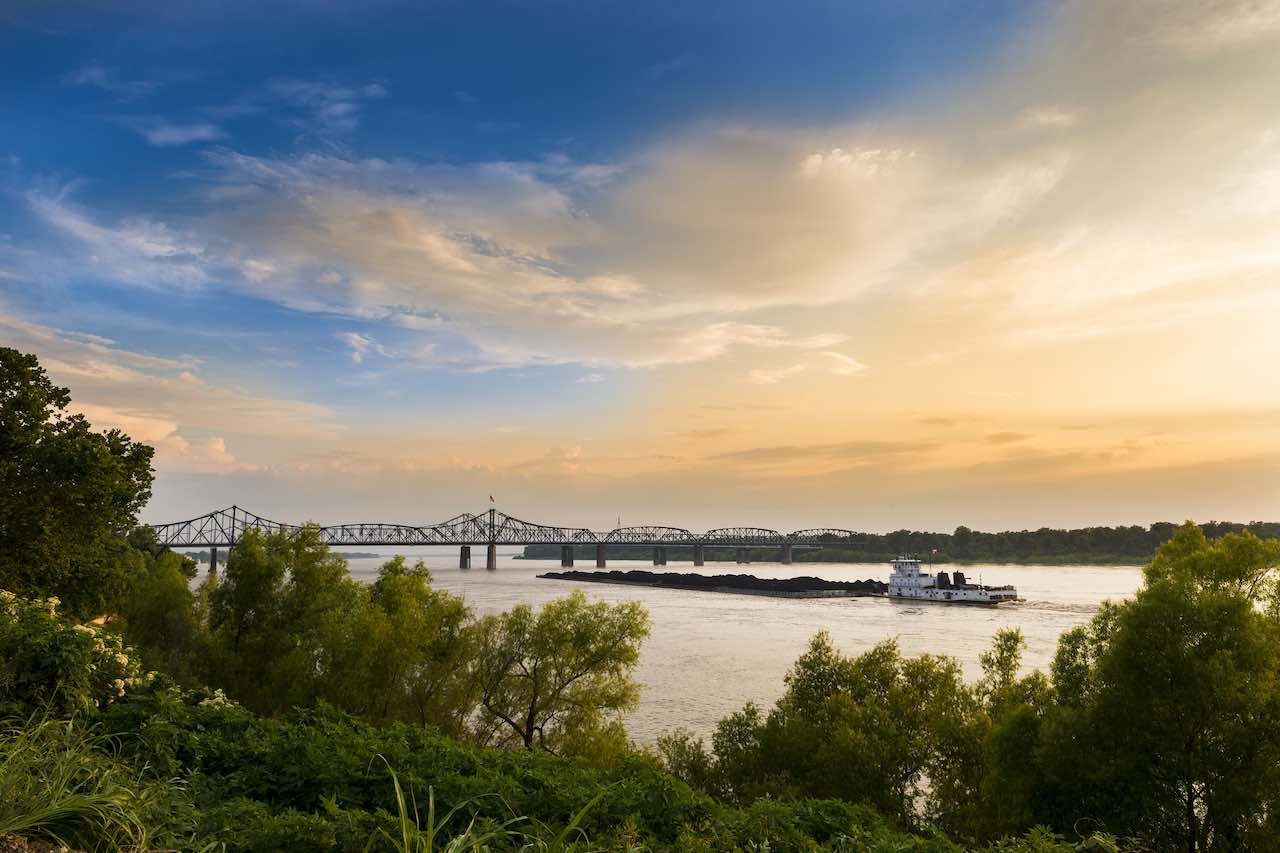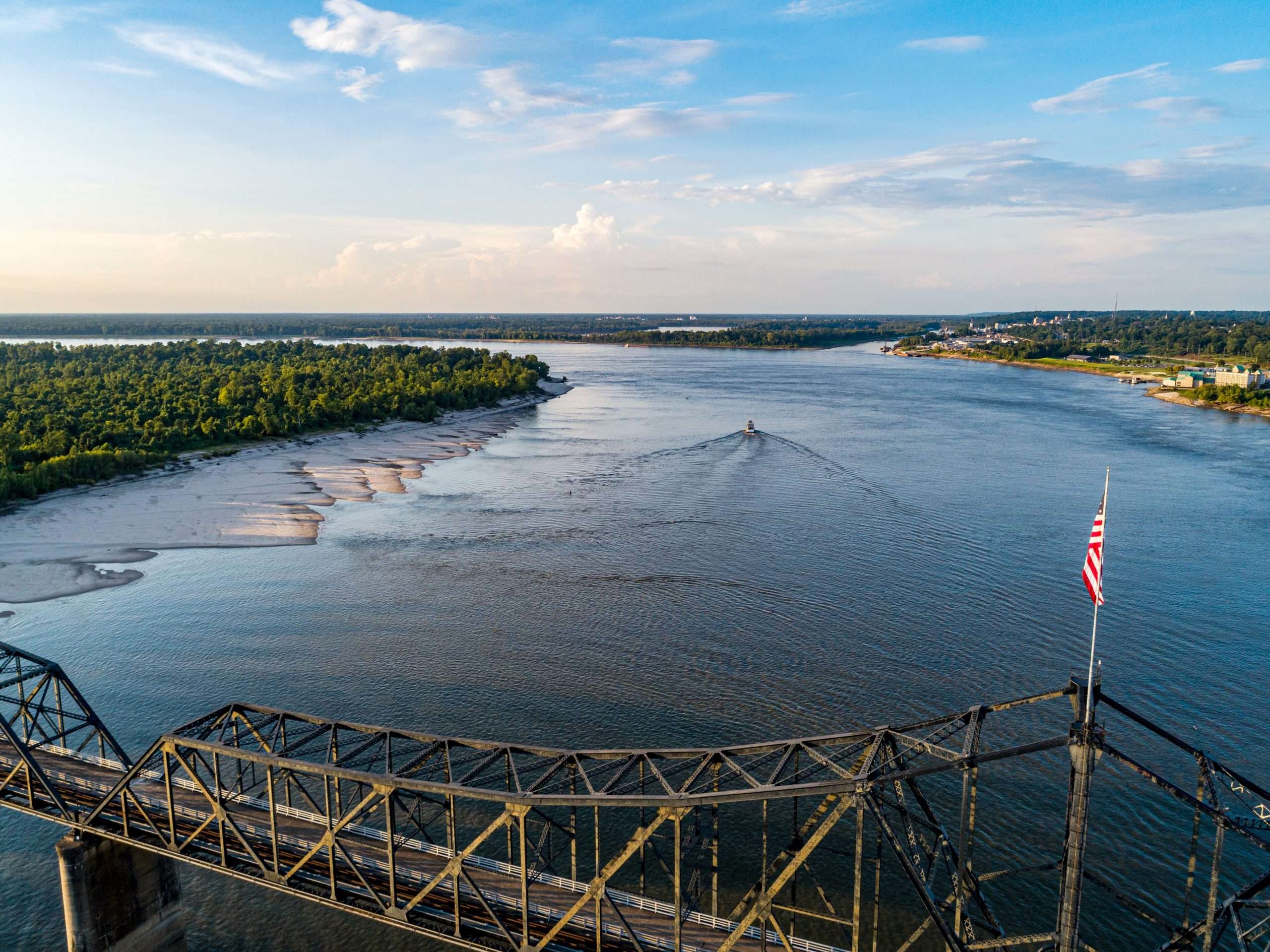Living off the grid in Mississippi offers a unique opportunity to embrace a self-sufficient lifestyle, thanks to the state’s climate and abundance of resources. With its relatively low cost of living and minimal impact from crime and poverty, Mississippi provides a favorable environment for those seeking an off-grid existence. However, it’s important to note that the coastal areas, characterized by high humidity, can present challenges for off-grid living. Additionally, the hot and humid climate can lead to issues such as black mold and deteriorating structures. Despite these considerations, counties like DeSoto, Marshall, and Monroe offer promising options for those looking to disconnect from conventional utilities. The Delta region, renowned for sustainable agriculture and homesteading, as well as the coastal regions of Jackson and Hancock Counties, provide beautiful landscapes and thriving off-grid living communities.

Best Counties for Off-Grid Living
If you’re considering off-grid living in Mississippi, you’re in luck. The state offers a great climate and abundant resources that make it a prime location for this lifestyle. When it comes to choosing the best counties for off-grid living, there are several that stand out. These counties provide the perfect combination of natural beauty, affordability, and access to essential services. Let’s take a closer look at some of the top options.
DeSoto County
DeSoto County is a popular choice for off-grid living due to its proximity to Memphis and its low cost of living. This county offers a variety of beautiful landscapes, ranging from rolling hills to lush forests. It also has a strong sense of community, with many residents embracing the off-grid lifestyle. Whether you’re looking to build your own homestead or join an existing off-grid community, DeSoto County has plenty to offer.
Marshall County
Marshall County is another excellent choice for off-grid living in Mississippi. This county boasts a blend of rural charm and modern amenities, making it an ideal location for both self-sufficient living and access to essential services. From picturesque farmland to scenic rivers, Marshall County offers a range of natural beauty for those seeking an off-grid lifestyle. Additionally, the county has a relatively low cost of living, making it an attractive option for those looking to save money while enjoying the benefits of off-grid living.
Benton County
Benton County is a hidden gem for off-grid enthusiasts. This county is nestled in the heart of Mississippi’s countryside, offering stunning landscapes and a tight-knit community. Benton County is known for its self-sufficient residents who value sustainable living. If you’re looking to disconnect from the grid and embrace a simpler lifestyle, Benton County may be the perfect place for you.
Monroe County
Monroe County offers a mix of natural beauty and cultural attractions, making it an appealing choice for off-grid living. From the rolling hills of the Appalachians to the sprawling countryside, Monroe County provides a picturesque backdrop for off-grid enthusiasts. The county is also home to vibrant communities that foster self-sufficiency and sustainable living. Whether you’re interested in starting your own off-grid homestead or joining an existing community, Monroe County has plenty to offer.
Tishomingo County
Tishomingo County is known for its breathtaking landscapes and strong sense of community. This county offers a wide range of outdoor recreational activities, including hiking, fishing, and kayaking. If you’re an off-grid enthusiast who appreciates nature’s beauty, Tishomingo County has it in abundance. The county’s low cost of living and affordable housing options make it an attractive destination for those looking to live off the grid.
Issaquena County
Issaquena County is a true haven for off-grid living. Located in the Mississippi Delta region, this county offers fertile land and plenty of opportunities for sustainable agriculture. From farming to livestock raising, Issaquena County provides ample space and resources for self-sufficiency. The county’s small population and close-knit communities make it an excellent choice for those seeking a tight network of like-minded individuals.
Hinds County
Hinds County is an excellent option for off-grid living due to its proximity to the state capital, Jackson. This county offers a blend of rural charm and urban amenities, making it an attractive destination for those who desire the best of both worlds. Hinds County is home to a variety of off-grid communities and homesteads, offering a supportive environment for those looking to live independently. The county’s diverse landscapes and affordable housing options make it a popular choice among off-grid enthusiasts.
Harrison County
Harrison County, located on the Gulf Coast, provides a unique off-grid living experience. Despite having a more urban feel compared to other counties on this list, Harrison County offers stunning coastal beauty and access to natural resources. Whether you’re interested in sustainable seafood harvesting or enjoying the beachfront lifestyle, Harrison County provides a range of opportunities for off-grid living.
Challenges of Off-Grid Living in Coastal Areas
While Mississippi offers excellent options for off-grid living, there are some challenges to consider, especially if you’re looking at coastal areas. The combination of high humidity and salty air can impact off-grid systems and require additional maintenance and precautions. Let’s dive into some of the common challenges and ways to mitigate them.
High Humidity
Coastal areas in Mississippi tend to have high humidity levels, which can affect off-grid living. High humidity can lead to increased moisture levels in homes and structures, making it more difficult to regulate temperature and prevent issues like mold and mildew growth. To combat high humidity, it’s essential to invest in proper ventilation systems and dehumidifiers. These can help keep indoor humidity levels in check and improve overall comfort in an off-grid living environment.
Impact on Off-Grid Systems
The combination of high humidity and salty air can also impact off-grid systems such as solar panels and wind turbines. The salt in the air can corrode metal components and reduce the efficiency of solar panels. Regular maintenance and cleaning of these systems are crucial to avoid any long-term damage. Additionally, investing in corrosion-resistant materials and proper grounding can help mitigate the effects of salty air on off-grid systems.
Mitigating Challenges
To mitigate the challenges of off-grid living in coastal areas, it’s essential to implement preventive measures and stay on top of maintenance tasks. Regular cleaning of off-grid systems and checking for any signs of corrosion or damage is crucial. It’s also important to ensure proper insulation and ventilation in homes to reduce moisture buildup. Investing in waterproofing materials and conducting regular inspections can help create a more resilient off-grid living environment.
Low Cost of Living and Crime Rates
One of the significant advantages of off-grid living in Mississippi is the low cost of living. When compared to many other states, Mississippi offers affordable housing options, lower property taxes, and a lower overall cost of living. This affordability can make off-grid living more accessible to individuals and families looking to reduce their expenses and enjoy a simpler lifestyle. Let’s delve into the impact of crime rates and poverty rates on off-grid living in the state.
Affordability of Off-Grid Living
Off-grid living inherently involves reducing reliance on public utilities such as electricity and water, which can significantly lower monthly expenses. Mississippi’s low cost of living complements this lifestyle choice, allowing individuals to allocate their financial resources towards sustainable practices, homesteading, and long-term self-sufficiency. The lower cost of land and housing options in many counties makes it more feasible for individuals to establish their off-grid homes and communities.
Impact of Crime Rates on Off-Grid Living
Crime rates can be a concern when considering off-grid living, especially in rural areas. However, the crime rates in Mississippi do not greatly affect those living off the grid. Many off-grid communities and homesteads are established in rural areas that have a tight-knit community and low crime rates. By fostering a strong sense of community and collaborating on security measures, off-grid residents can mitigate potential risks and enjoy a safe living environment.
Poverty Rates and Off-Grid Living
Mississippi does have higher poverty rates compared to the national average. However, for those drawn to off-grid living, the focus is often on self-sufficiency and sustainable practices rather than traditional financial success. Many off-grid enthusiasts prioritize living within their means and reducing their reliance on external resources. With careful planning, budgeting, and a strong emphasis on self-sufficiency, individuals can thrive in off-grid communities and overcome the challenges associated with poverty rates.
Climate Issues in Mississippi
The climate in Mississippi is characterized by hot and humid summers, which can present certain challenges for off-grid living. These challenges include the impact of high temperatures and humidity on structures, the occurrence of black mold, and the prevention of rot. Understanding these climate issues and implementing appropriate measures can help create a comfortable and sustainable off-grid living environment.
Hot and Humid Climate
Mississippi’s climate can be quite demanding, particularly during the summer months. High temperatures and humidity levels can make it challenging to maintain comfortable living conditions without relying on air conditioning. Off-grid living in such a climate requires a thoughtful approach, including proper insulation, shade structures, and natural ventilation techniques. Investing in energy-efficient appliances and utilizing solar-powered fans can be beneficial for reducing dependence on the grid for cooling needs.
Impact on Structures
The combination of high temperatures and humidity can also take a toll on structures in off-grid living environments. Wood can warp, shrink, and crack under extreme heat and moisture levels. To mitigate this, it’s important to choose building materials that are resilient to the climate and regularly inspect and maintain structures. Proper ventilation and insulation are key to preventing heat buildup and moisture damage inside buildings.
Dealing with Black Mold
One of the most common challenges in humid climates is the growth of black mold. Mold thrives in warm and damp environments, which are often present in off-grid homes in Mississippi. Black mold can cause health issues and damage to properties if not addressed promptly. Preventing black mold requires proper moisture management, including controlling humidity levels, repairing any leaks promptly, and ensuring adequate ventilation. Regular inspections and mold prevention measures are crucial to maintaining a healthy living environment.
Preventing Rot
Another concern in Mississippi’s climate is the potential for wood rot. Excessive moisture can lead to the deterioration of wooden structures, including flooring, walls, and support beams. Proper sealing and waterproofing of wooden surfaces, as well as regular inspections for signs of rot, can help prevent costly repairs and maintain the integrity of off-grid structures. Utilizing pressure-treated or rot-resistant wood can also increase the lifespan of wooden components.
Other Counties for Off-Grid Living
While the previously mentioned counties are among the top choices for off-grid living in Mississippi, there are additional counties that offer attractive opportunities for those seeking a self-sufficient lifestyle. Let’s explore some of these counties and what they have to offer.
Lafayette County
Lafayette County is located in the northern part of Mississippi and offers a mix of beautiful landscapes and vibrant communities. The county boasts a strong agricultural heritage and provides ample land for farming and homesteading. Lafayette County is known for its fertile soil, making it an ideal location for sustainable agriculture. Additionally, the county offers affordable housing options and a low cost of living, making it an attractive destination for off-grid enthusiasts.
Marion County
Marion County, situated in the southern part of the state, offers a peaceful and scenic environment for off-grid living. The county is known for its vast forests, waterways, and rich biodiversity. Marion County provides plenty of opportunities for outdoor activities such as hunting, fishing, and exploring nature. With its affordable land and welcoming communities, it’s a great place for off-grid individuals and families to establish their homesteads.
Franklin County
Franklin County, located in southwest Mississippi, offers a rural setting and a strong sense of community. This county is known for its natural beauty, including forests, rivers, and rolling hills. Franklin County provides a supportive environment for those looking to live off the grid, with affordable land and housing options available. The county’s peaceful atmosphere and proximity to nature make it an attractive choice for off-grid enthusiasts.
Sustainable Agriculture and Homesteading in the Delta
The Mississippi Delta region is renowned for its fertile soil and agricultural opportunities, making it an ideal location for those interested in sustainable agriculture and homesteading. Let’s explore the advantages of the Delta region and how it supports a self-sufficient and off-grid lifestyle.
Agricultural Opportunities
The Mississippi Delta region is often referred to as the “breadbasket of the state” due to its rich soil and agricultural productivity. This region offers vast expanses of farmland, perfect for cultivating crops and raising livestock. Off-grid individuals and families can take advantage of this fertile land to grow their own food and establish sustainable farming practices. From fruits and vegetables to livestock and poultry, the Delta presents an array of opportunities for self-sufficiency and sustainable agriculture.
Homesteading Possibilities
The Delta region also provides ample space for homesteading and establishing off-grid communities. The large plots of land available in this area allow individuals to build their own self-sufficient homes, cultivate gardens, and raise livestock. Homesteaders can enjoy the benefits of rural living while still having access to nearby towns and markets for essential supplies and services. The Delta’s community-oriented mindset and rich agricultural heritage make it a prime location for individuals seeking a more self-reliant lifestyle.

Natural Beauty and Off-Grid Communities in Coastal Regions
Mississippi’s coastal regions offer not only natural beauty but also thriving off-grid communities. Let’s explore some of the areas that combine picturesque landscapes with access to essential services and off-grid living communities.
Mississippi Delta Region
As mentioned earlier, the Mississippi Delta region is known for its fertile soil and agricultural opportunities. This region also provides stunning natural beauty, with its expansive fields, winding rivers, and charming small towns. The Mississippi Delta offers access to off-grid communities and like-minded individuals who embrace self-sufficiency and sustainable living. Whether you’re interested in sustainable agriculture, off-grid homesteading, or simply enjoying the serenity of rural life, the Delta region has much to offer.
Jackson County
Jackson County, located on the Gulf Coast, offers a mix of coastal beauty and off-grid living opportunities. With its stunning beaches, nature preserves, and abundant wildlife, this county provides a serene environment for those seeking a closer connection to nature. Jackson County also offers access to off-grid living communities that emphasize sustainability and self-sufficiency. Whether you’re interested in fishing, boating, or simply enjoying the coastal lifestyle, Jackson County provides a range of activities for off-grid enthusiasts.
Hancock County
Hancock County is another coastal gem that combines natural beauty with off-grid living possibilities. This county offers a picturesque setting with its pristine beaches, lush forests, and peaceful bayous. For off-grid enthusiasts, Hancock County provides access to off-grid communities and resources to support sustainable living. The county’s commitment to preserving its natural resources and fostering a strong sense of community makes it an attractive choice for those seeking an off-grid lifestyle.
FAQs About Off-Grid Living in Mississippi
As you explore the possibility of off-grid living in Mississippi, you may have several questions and concerns. Let’s address some common FAQs and provide answers to help you navigate this lifestyle choice.
Common Questions
Is off-grid living legal in Mississippi? Off-grid living is legal in Mississippi, as long as you comply with local building codes and regulations. It’s advisable to consult with local authorities and obtain any necessary permits or approvals before embarking on an off-grid living journey.
How do I ensure access to clean water while living off the grid? Access to clean water is essential for off-grid living. Many off-grid residents rely on wells, rainwater harvesting systems, or spring water sources. Installing appropriate filtration and purification systems can help ensure the water’s safety and quality.
How can I generate electricity off the grid in Mississippi? Off-grid electricity can be generated through various renewable energy sources such as solar panels or wind turbines. Mississippi’s abundance of sunlight and favorable wind conditions make it an ideal location for harnessing renewable energy.
What are the zoning regulations for off-grid living in Mississippi? Zoning regulations can vary by county and municipality in Mississippi. It’s essential to research and understand the specific zoning regulations in your desired location to ensure compliance with local laws.
Answers from Off Grid Grandpa
Off Grid Grandpa is a website that provides resources and answers to questions about off-grid living. They have a comprehensive FAQ section that covers a wide range of topics related to living off the grid, including legal considerations, sustainable energy options, and DIY projects. Their website is a valuable resource for those looking to learn from experienced off-grid enthusiasts and gain insights into this lifestyle choice.
In conclusion, Mississippi offers a plethora of options for off-grid living, with various counties providing opportunities for self-sufficient and sustainable lifestyles. From the fertile lands of the Delta region to the coastal beauty of Jackson and Hancock Counties, there is a county to suit every off-grid enthusiast’s preferences. While there are challenges such as high humidity and climate issues, with proper planning and the right measures in place, you can create a comfortable and resilient off-grid living environment. With Mississippi’s low cost of living, access to natural resources, and supportive communities, off-grid living in the state can be both fulfilling and rewarding.





